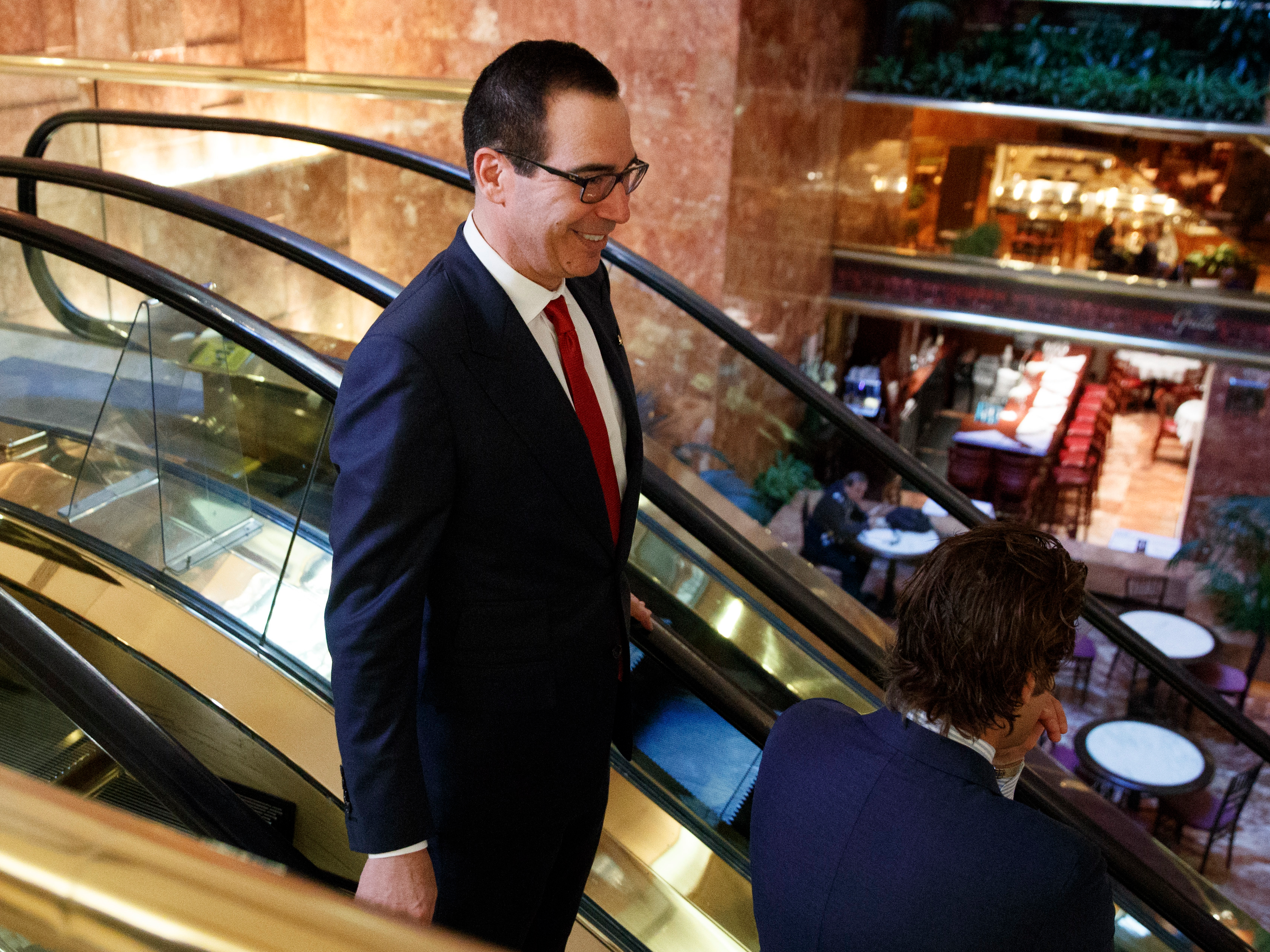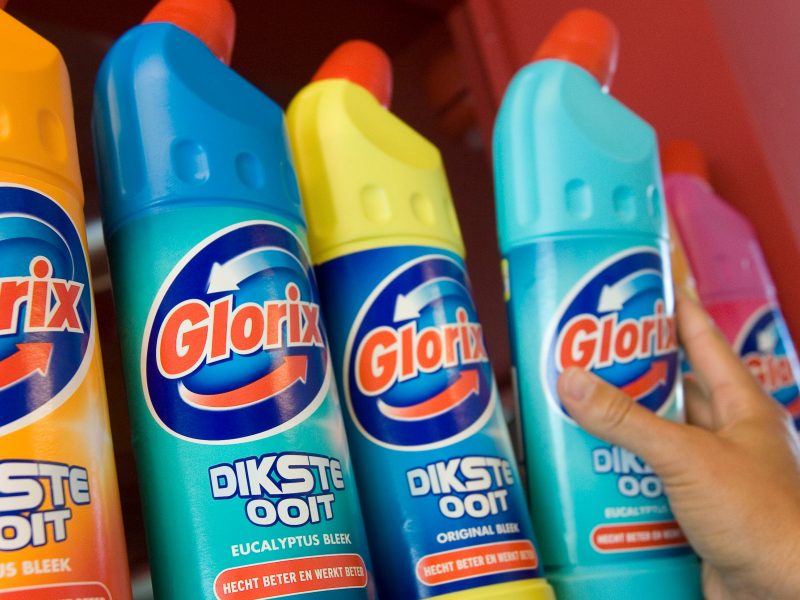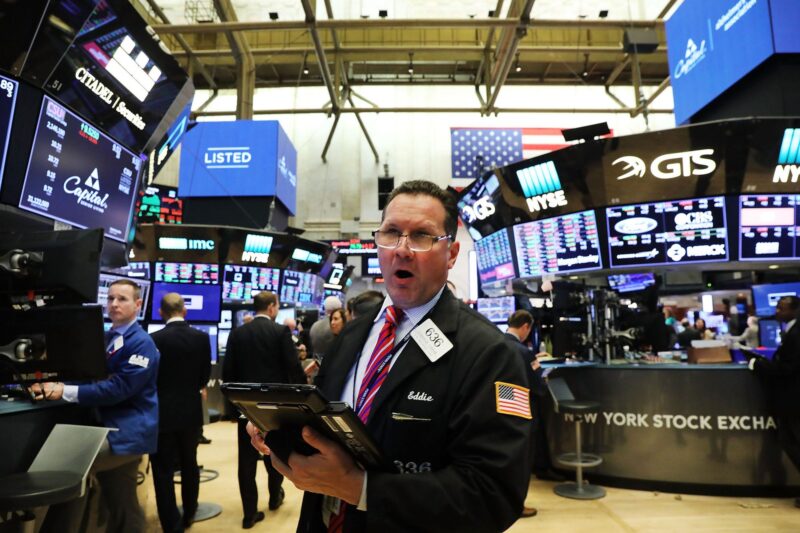Steven Mnuchin, President-elect Donald Trump’s nominee for Treasury secretary, said the top priority of the new Trump administration would be to cut taxes.
“Our first priority is to cut taxes,” Mnuchin said in an interview with CNBC’s Squawk Box. “We want to cut the corporate taxes, which will bring back growth.”
During the interview, which also included Trump’s choice for commerce secretary, Wilbur Ross, Mnuchin described a plan to cut the corporate tax rate to 15% from its current 35% level.
On personal taxes, Mnuchin said the planned tax cut from the Trump administration would not favor the upper class because any cut for the wealthy would be offset by “closing various exceptions” in the tax code. He did not specify what these would be but did say the “absolute level” of upper-class taxes would not go down.
Mnuchin said the changes in the tax codes would be the largest changes since those under President Ronald Reagan in the 1980s.
Trump's Treasury pick said these tax changes would be able to bring the US economy to "sustained 3 to 4% GDP growth." Trump said multiple times on the campaign trail that 4% growth to gross domestic product was attainable.
Mnuchin, a longtime Goldman Sachs employee and Hollywood producer, said his support of Trump cost him a few friends along the way.
"There were a lot of people in California and New York who wanted to stop being friends," Mnuchin said. Both states were won by Trump's Democratic opponent, Hillary Clinton.
Asked about Trump's agreement with United Technologies to keep the production of some Carrier air-conditioning units and nearly 1,000 jobs in the US, Mnuchin said Trump initiated the deal.
"This started because Trump called up the CEO of United Technologies and told him it's important to keep jobs in this country," Mnuchin told CNBC.
Ross called Trump's ability to keep the Carrier jobs in the country "a trade victory before we even come into office."
On trade, both Mnuchin and Ross said they did not want to be in regional trade deals such as the Trans-Pacific Partnership or the North American Free Trade Agreement because it was too easy to give up a large number of concessions during negotiations.
On China, Mnuchin said the administration, when in place, would evaluate any possible trade-enforcement action against the country. Trump has repeatedly accused China of devaluing its currency against the US dollar to make its exports more competitive.
"If we determine we need to label them a currency manipulator, we will do so," Mnuchin said.
Additionally, Mnuchin said he expected interest rates to stay low for a the foreseeable future.
"I think that interest rates are going to stay relatively low for the next couple of years," Mnuchin said.
Both Mnuchin and Ross said they were "fans" of Federal Reserve Chair Janet Yellen, but the two would not comment on whether she would serve out her term or be reappointed by Trump.
Asked about a possible repeal of the Dodd-Frank Act that has regulated banks since the financial crisis, Mnuchin said only that the law was "way too complicated"; he would not say which parts of the law the new administration would modify. Trump previously said he would repeal the law, but he recently backed off those statements.











